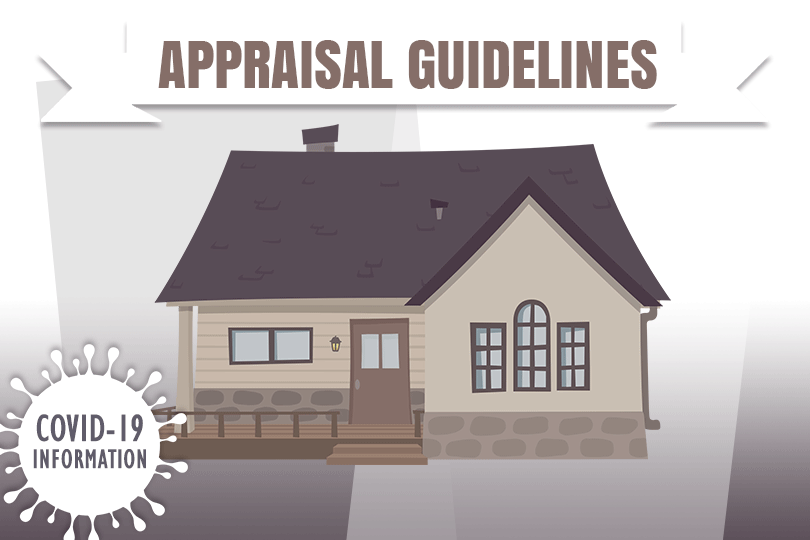What Homebuyers Should Know About Appraisals
March 15, 2021
What Is a Home Appraisal?
Home appraisals are professional, unbiased estimations of a house’s value. They are conducted by licensed appraisers who conduct a thorough inspection of the property to assess its true value, which may or may not be on par with the asking price the seller has set.
Lenders require a home appraisal be conducted before closing to make sure they are not loaning more money than what the house is worth. This is to protect themselves from taking a loss in the case of a foreclosure. If the borrower cannot make payments and defaults on the mortgage, the lender can sell the property to recoup the money they are owed. The appraisal helps lenders ensure that they do not lend more than what they can make back in this scenario.
It is important to remember that an appraisal is NOT the same as a home inspection. The appraisal is required by lenders to protect them for over-lending, whereas an inspection is for the buyer’s benefit. A thorough home inspection gives the homebuyer a thorough assessment of the condition of the house, which includes findings about the heating and cooling systems, plumbing, electrical work, water, and sewage, as well as some fire and safety issues.
How Is a Home Appraisal Done?
For a thorough appraisal report, professional appraisers consider all factors that could possibly affect the market value of a house. The number of bedrooms and bathrooms, updated appliances, type of flooring, etc. can all affect the appraisal. Even the exterior of the house, such as the lot size, landscaping, and upgrades are taken into consideration. Appraisers also include the pricing of recently sold comparable houses in the area in the appraisal of the home.
Why Should Borrowers Care?
If the house you put in an offer on is appraised for more than the asking price, congratulations! You got a great deal! But there is a chance that the house is valued at less than what the seller is asking for. In that case, things get a little more complicated. Even if you have been approved for a mortgage, it is not guaranteed that your lender will loan you the listing price. That decision is based on the appraisal report, not the asking price that the seller sets.
For example, you may be approved for a $200,000 loan, which is the seller's asking price. But the home you are interested in buying is appraised for $160,000, only. Based on the appraisal, your lender can choose to deny you the entire amount you are approved for.
In cases where the home appraisal comes back lower than the asking price, the buyer has three options. They can choose to make up the difference in price themselves with out-of-pocket funds, negotiate a lower price with the seller, or back out of the deal (if there is an appraisal contingency in place).
Regardless of what the property is appraised for, whether you are a repeat or first-time homebuyer, whether you are purchasing or refinancing, a basic understanding of how a home appraisal works will go a long way in helping you navigate the mortgage process smoothly.
Note: In March of 2020, HUD issued a Mortgagee Letter announcing temporary changes to the appraisal requirements for FHA loans that included the ability to have an exterior-only appraisal or a desktop appraisal.
------------------------------
RELATED VIDEOS:
What You Need to Know About the Appraisal Fee
The Appraisal is an Important Requirement
Build Your Dream Home With a One-Time Close Loan

FHA Loan Articles
March 11, 2025Adding a co-borrower to your FHA is a way to offset fears that you won't qualify for the mortgage on your own. An FHA loan co-borrower with a more substantial financial profile may offset the primary borrower's weaknesses, demonstrating a reduced risk to the lender. But for an FHA loan, don't assume that one borrower with good credit scores can offset one with non-qualifying scores. We ask 20 questions about co-borrowing to help you better plan for your FHA loan.
March 10, 2025Even if you aren’t considering your home loan options right this second, it’s smart to know your options if you decide to pursue a new home later. To that end, using a mortgage calculator is a smart choice for setting some basic budgeting parameters as you plan your path toward home ownership. A mortgage calculator helps you plan for future financial scenarios, such as buying new or refinancing a current home.
February 27, 2025 Buying your first home can feel overwhelming, especially when you start hearing terms like "subprime mortgages" and "FHA loans." Understanding these options is crucial for making the right decision. Subprime mortgages are designed for borrowers with less-than-perfect credit histories. This might include past issues like late payments, loan defaults, or even bankruptcy...
February 26, 2025Buying your first home can be exciting, but the mortgage process often throws a curveball of unfamiliar terms. Here are answers to common questions first-time homebuyers have about mortgage jargon and terms.
February 18, 2025Mortgages typically require mortgage insurance and homeowners insurance. They are both key parts of your home loan but they serve very different functions. Do you know the differences between the two? Find out how ready you are to begin the process of buying your new house.







